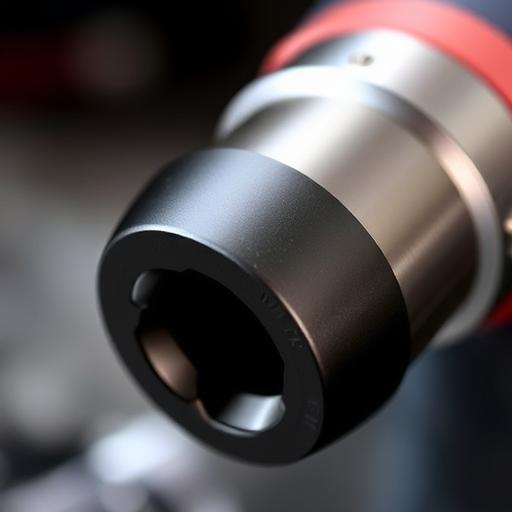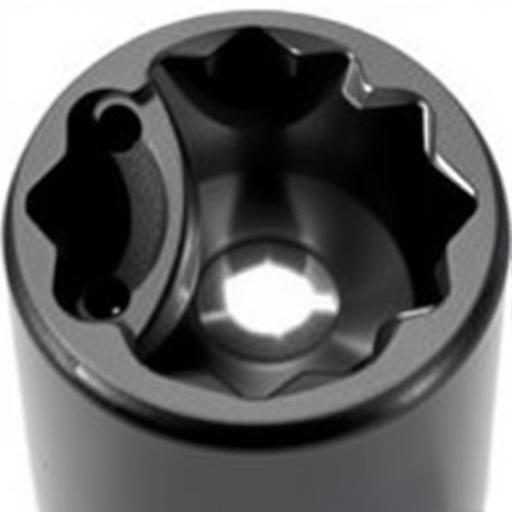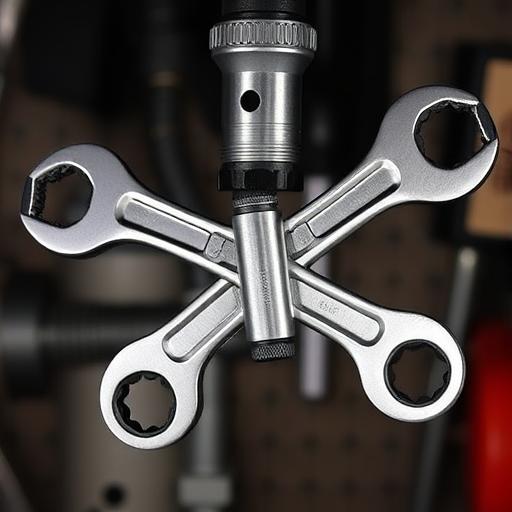What is a Weighted Socket and How Does it Work
In the world of tools and machinery, efficiency and precision are key. One unsung hero that plays a critical role in achieving these goals is the weighted socket. Designed to enhance the performance of power tools like impact wrenches and drills, weighted sockets reduce vibration, increase stability, and improve overall tool functionality. Commonly used in industries such as construction, automotive, and manufacturing, these specialized sockets are a game-changer for professionals and DIY enthusiasts alike. In this blog, we’ll explore what a weighted socket is, how it works, its benefits, and how to choose the right one for your needs.
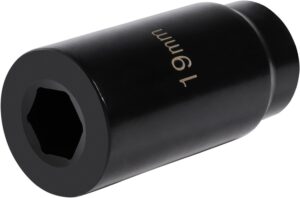
What is a Weighted Socket?
A weighted socket is a specialized tool attachment designed to reduce vibration and improve stability during operation. Unlike standard sockets, weighted sockets incorporate extra mass, often in the form of a weighted collar or insert, to counteract the vibrations caused by high-speed tools. This additional weight is typically made from dense materials like steel, tungsten, or brass. Beyond vibration reduction, weighted sockets also help maintain rotational balance, ensuring smoother and more efficient tool performance.
How Does a Weighted Socket Work?
The Science Behind Weighted Sockets
The effectiveness of a weighted socket lies in the principles of physics. By adding mass to the socket, the tool’s rotational inertia increases, which helps stabilize the motion and reduce vibration. This improved stability ensures that the tool operates more smoothly, minimizing operator fatigue and enhancing precision. The added weight also helps absorb the energy from impacts, further reducing wear and tear on both the socket and the tool.
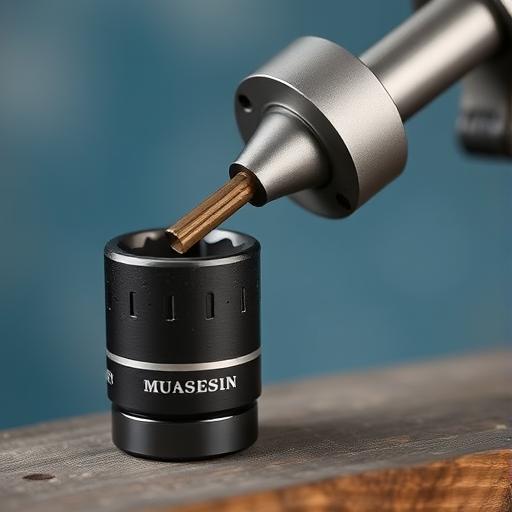
Key Components of a Weighted Socket
Weighted sockets are designed with specific components to maximize their functionality. The most common feature is a weighted collar or insert, which is strategically placed to balance the socket during rotation. Some sockets also include grooves or ridges to improve grip and reduce slippage. These design elements work together to enhance the socket’s performance and durability.
Practical Mechanism in Use
Weighted sockets are often used in conjunction with power tools like impact wrenches and drills. For example, in automotive repair, a weighted socket can reduce the vibration caused by an impact wrench when tightening or loosening bolts. This not only improves efficiency but also reduces the risk of damage to the fastener or the tool itself. Similarly, in construction, weighted sockets can help stabilize drills when boring through tough materials.
Benefits of Using a Weighted Socket
Improved Tool Performance
Weighted sockets significantly enhance the performance of power tools by reducing vibration and increasing stability. This leads to smoother operation, greater precision, and less operator fatigue, making tasks easier and more efficient.
Extended Tool Lifespan
By minimizing vibration and absorbing impact energy, weighted sockets reduce wear and tear on both the socket and the tool. This not only extends the lifespan of your equipment but also saves you money on repairs and replacements.
Enhanced Safety
Vibration and slippage are common causes of accidents when using power tools. Weighted sockets mitigate these risks by providing a more stable and controlled operation, ensuring a safer working environment.
Versatility in Applications
Weighted sockets are suitable for a wide range of industries and tasks, from automotive repair and construction to precision manufacturing. Their ability to improve tool performance makes them a valuable addition to any toolkit.
Types of Weighted Sockets
Fixed Weight Sockets
Fixed weight sockets come with a permanently attached weight, making them ideal for specific applications where consistent performance is required. They are durable and easy to use, though they may lack the flexibility of adjustable models.
Adjustable Weight Sockets
Adjustable weight sockets allow users to modify the weight based on the task at hand. This versatility makes them a popular choice for professionals who work on a variety of projects.
Industry-Specific Weighted Sockets
Certain industries require specialized weighted sockets designed for specific tasks. For example, heavy machinery maintenance may necessitate larger, more robust sockets, while precision tasks call for smaller, finely balanced versions.
How to Choose the Right Weighted Socket
Consider the Tool Type
The type of tool you’re using plays a crucial role in selecting the right weighted socket. Ensure the socket is compatible with your tool’s specifications to achieve optimal performance.
Weight and Size Requirements
Choosing the appropriate weight depends on the task and the tool being used. Larger tasks may require heavier sockets, while smaller, precision-focused jobs may benefit from lighter ones.
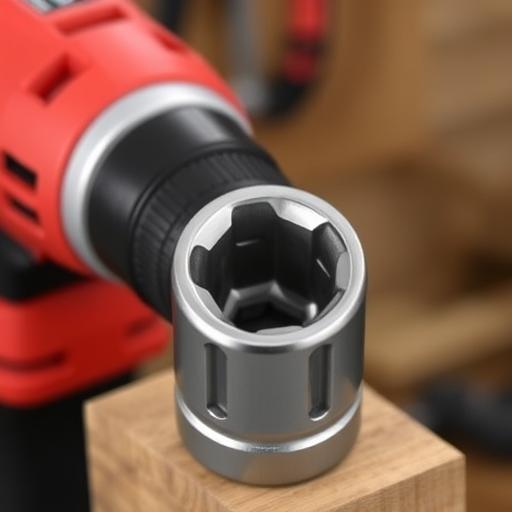
Material and Durability
Look for sockets made from high-quality materials like steel or tungsten, which offer durability and long-term performance. Ensure the socket is designed to withstand the demands of your work environment.
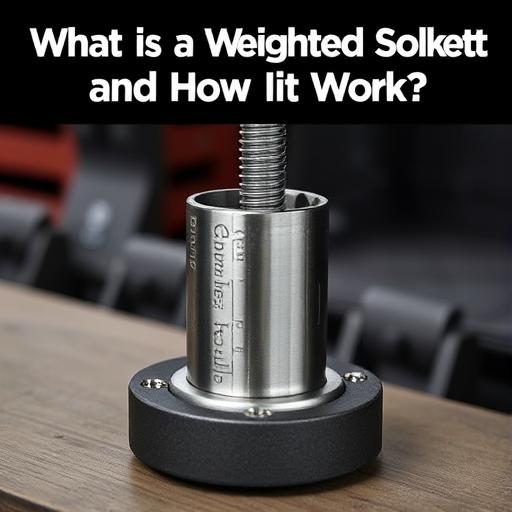
Compatibility with Fasteners
Proper sizing is essential to ensure the socket fits securely on the fastener. Using the wrong size can lead to slippage, damage, or inefficient operation.
Maintenance and Care for Weighted Sockets
Cleaning and Storage Tips
Regular cleaning and proper storage are essential to keep weighted sockets in good condition. Wipe them down after use and store them in a dry, organized toolbox to prevent rust and damage.
Inspecting for Wear and Tear
Regularly inspect your sockets for signs of wear, such as cracks, dents, or deformed edges. Address any damage promptly to maintain performance and safety.
Lubrication and Calibration
For sockets with moving parts, occasional lubrication can help maintain smooth operation. Additionally, ensure the socket remains balanced and calibrated for optimal functionality.
Conclusion
Weighted sockets are a valuable tool for anyone looking to enhance the performance, safety, and efficiency of their power tools. By reducing vibration, improving stability, and extending tool lifespan, these specialized sockets are a must-have for professionals and DIY enthusiasts alike. Whether you’re working in construction, automotive repair, or precision manufacturing, a weighted socket can make your tasks easier and more effective. Explore your options today and consider adding a weighted socket to your toolkit for improved results.
FAQ Section
What is the primary purpose of a weighted socket?
Weighted sockets are designed to reduce vibration, improve stability, and enhance the performance of power tools.
Can weighted sockets be used with any tool?
They are commonly used with impact wrenches and drills, but it’s important to check compatibility with your specific tool.
How do I know which weight is right for my task?
Consider the tool, fastener size, and application, and consult manufacturer guidelines for recommendations.
Are weighted sockets more expensive than standard sockets?
They may be slightly more expensive due to their specialized design but offer long-term benefits that justify the cost.
Can I use a weighted socket for precision tasks?
Yes, certain weighted sockets are designed for precision work and can improve accuracy and control.

